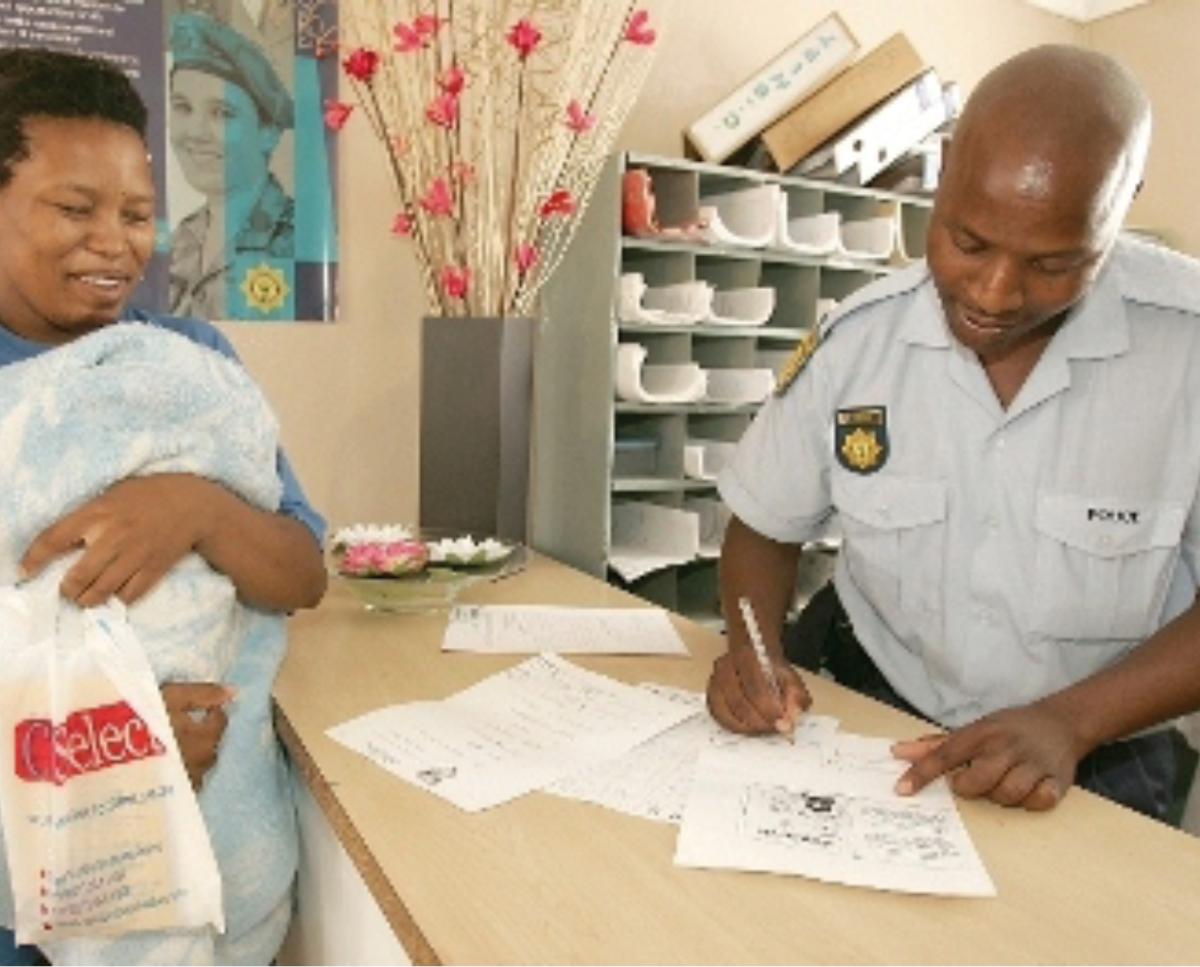The National Development Plan envisions a South Africa where “all people are and feel safe.”
To bring this vision to life, the Constitution allows for the establishment of institutions like the Civilian Secretariat for Police Service (CSPS) to play an oversight role in ensuring police accountability and service delivery.

The CSPS is the watchdog charged with ensuring policing in South Africa is professional, effective and people-centred.
“The CSPS is a department that reports to the Ministry of Police and is mandated to provide support and policy advice to the Ministry of Police,” said Thulani Smike Sibuyi, Director-General of the department.
In an interview showcasing the work of the Civilian Secretariat, Sibuyi outlined how the institution fulfils its vital constitutional mandate.
“The CSPS monitors and evaluates the performance of the SAPS against planned programmes on policing through promoting accountability and transparency in the service.”
He emphasised CSPS's holistic approach to crime prevention: “The CSPS mobilises communities on crime prevention by bridging the gap between the police and the communities,” he said.
The CSPS doesn’t operate in isolation.
Its success is dependent on strong partnerships with communities. The CSPS assists in capacitating Community Policing Forums (CPFs), which consist of members of the community who work with the police in the fight against crime.
DG Sibuyi firmly believes that the first line of defence against crime starts with ordinary community members.
“As a community member, you have to take responsibility for your safety and your surroundings. Always be alert, and report any suspicious activities within your community,” he said.
“Be the eyes and ears in your community. Be intentional about reducing the risk of crime and violence.”
He urged citizens to hold each other accountable for actions that promote alcohol and drug abuse. He added that citizens should protect children and young people from psychologically damaging homes and similar environments.
“Participate in the development of safety plans through community structures,” he urged. “Be the change you want to see.”
Battle against GBVF
South Africa’s battle against Gender Based Violence and Femicide (GBVF) and domestic abuse remains a national priority. The CSPS plays a pivotal role in ensuring SAPS members comply with the Domestic Violence Act (DVA).
“Section 18(4)(a) of the DVA makes it a misconduct, as contemplated in the SAPS Act, for a SAPS member who fails to comply with the obligations placed on them by the DVA or the National Instruction on Domestic Violence,” DG Sibuyi explained.
He said the CSPS — in partnership with civil society organisations, Provincial Secretariats and SAPS — met to discuss the high rates of domestic and gender-based violence and femicide in the country and the role of the police in curbing the trend.
In the meeting, the different stakeholders reflected on the importance of the DVA and how SAPS members should implement the Ministerial Six-Point Plan — a guideline for SAPS members when dealing with victims of sexual offences and domestic violence.
This guideline is readily available in all police stations throughout the country. It encourages respectful and sensitive treatment of victims, private environments for statements, medical referrals, trained investigators, victim support services, and regular feedback to victims.
Effective oversight is at the core of the CSPS’s work.
“The CSPS monitors the performance of the police service and regularly assesses the extent to which the police service is implementing policy through adequate policies and effective systems,” DG Sibuyi said.
The CSPS also monitors “the utilisation of the budget of the police service to ensure compliance with all policy directives or instructions of the Minister.” In addition, the CSPS is tasked with producing reports on the compliance of SAPS with policy directives and provides recommendations for areas that need improvement.
On cooperation with other oversight bodies, Sibuyi said, “ The Independent Police Investigative Directorate (IPID) is invited to participate in forums that are relevant to its work. However, it should be noted that by law the CSPS does not play any oversight role over the IPID.”
Increasing crime rate in urban areas
In light of increasing crime rates in urban areas, the CSPS has supported a collaborative approach.
“The Ministry of Police has entered into a cooperation agreement with all the Metros in the country,” said DG Sibuyi.
“These agreements are drafted with the aim of adopting an integrated crime-fighting approach which involves police and law enforcement agencies in the Metros.”
This strategy involves “the exchange and the sharing of resources in the fight against crime, [and includes] special operations by all law enforcement, joint initiatives, plans, interventions and programmes by all spheres of government.” This collaborative approach is already bearing fruit in the Western Cape, Eastern Cape and KwaZulu-Natal.
The CSPS has developed impactful frameworks like the Integrated Crime and Violence Prevention Strategy (ICVPS), which promotes a “whole-of-government” and “whole -of-society” approach.

This framework ensures that safety is at the centre of planning for economic development and also acknowledges the need for complementary interventions to address socio-economic factors that contribute to crime and violence.
“Implementation mechanisms of the ICVPS, such as Community Safety Forums, have also ensured that community members are active participants in realising safer communities for all,” he said.
Public involvement remains a cornerstone when developing policies that are effective in policing.
“In order to ensure transparency and co-design of policy, stakeholders are consulted at various stages, including the conceptualisation phase and in the review of the draft policy prior to its finalisation,” DG Sibuyi concluded.
For more information visit:
www.policesecretariat.gov.za



 Facebook
Facebook Twitter
Twitter WhatsApp
WhatsApp